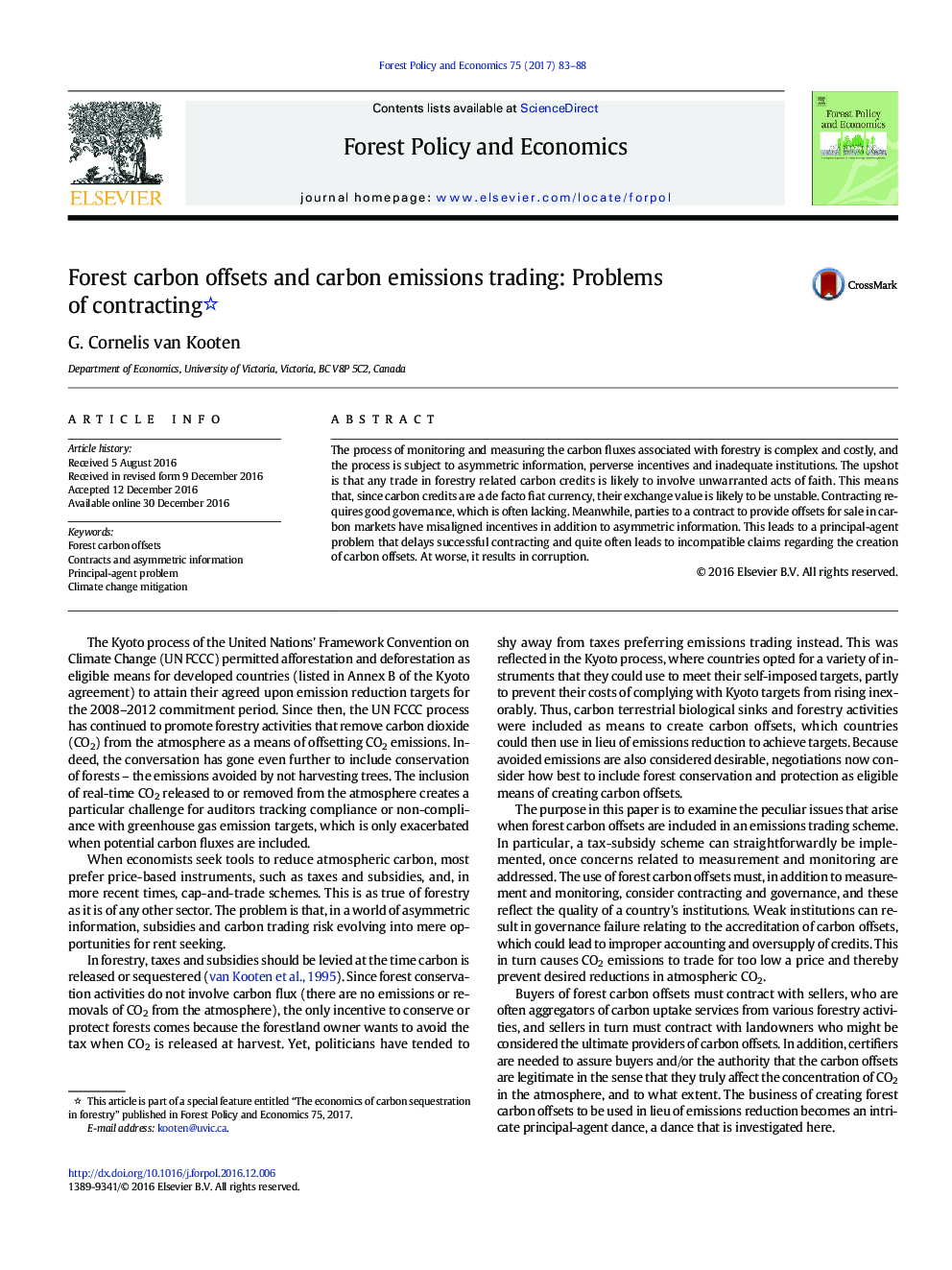| Article ID | Journal | Published Year | Pages | File Type |
|---|---|---|---|---|
| 6459769 | Forest Policy and Economics | 2017 | 6 Pages |
â¢There is a cost of using forest carbon offset credits in lieu of CO2 emission reductions.â¢In addition to transaction costs, poor governance is an obstacle to creation of carbon offsets.â¢There are many principal-agent layers between the supplier and demander of forest offsets.â¢Purchasers of forest carbon offsets are often ignorant of the actual impact on climate mitigation.
The process of monitoring and measuring the carbon fluxes associated with forestry is complex and costly, and the process is subject to asymmetric information, perverse incentives and inadequate institutions. The upshot is that any trade in forestry related carbon credits is likely to involve unwarranted acts of faith. This means that, since carbon credits are a de facto fiat currency, their exchange value is likely to be unstable. Contracting requires good governance, which is often lacking. Meanwhile, parties to a contract to provide offsets for sale in carbon markets have misaligned incentives in addition to asymmetric information. This leads to a principal-agent problem that delays successful contracting and quite often leads to incompatible claims regarding the creation of carbon offsets. At worse, it results in corruption.
